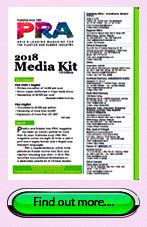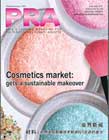PRA Chinese
Rubber Journal Asia Injection Moulding Asia Energy, Oil & Gas Asia
VISIT OUR OTHER SITES:
PRA Chinese
Rubber Journal Asia
Injection Moulding Asia
Energy, Oil & Gas Asia
Malaysia’s plastic waste problem escalates as it becomes a dumping ground

Mountains of plastic waste from countries like the US, Britain, South Korea, and Spain can be seen scattered along the streets of Pulau Indah, an industrial island town on the outskirts of Kuala Lumpur and home to Malaysia’s biggest port.
Container loads of plastic waster are unloaded onto the island, even as previous loads are still being burnt in the dozen or so recycling factories.
Pulau Indah is one of many towns in Malaysia where illegal plastic recycling factories have popped up in recent months as the country became the top choice for plastic waste exporters from around the world.
Earlier this year, a Chinese ban on waste imports disrupted the flow of over 7 million tonnes of scrap plastic, leading to dumping grounds all over Malaysia. Malaysia imported nearly 500,000 tonnes of plastic waste between January and July from just its top 10 source countries, compared to 316,600 tonnes in 2017 and 168,500 tonnes in 2016.
Many illegally operating factories have opened up in the country to handle the waste, using low-end technology, and environmentally harmful methods to rid the waste.
“The situation is getting worse, especially with more and more illegal plastic recycling factories,” said Energy, Technology, Science, Climate Change and Environment Minister, Yeo Bee Yin.
Used plastic is recycled into pellets, which are then used to manufacture other plastic products, but the process comes with pollution risks. Plastic unsuitable for recycling is burnt, which releases toxic chemicals into the atmosphere. Or it ends up in landfill, potentially contaminating soil, and water sources.
In the Pulau Indah industrial zone, there were reportedly nearly a dozen recycling plants without signboards or company information, though government data shows only two factories in that area have a licence to import plastic waste.
One of the bigger ones, Jingye Manufacturing Sdn Bhd, was shut down in August for not having a licence. But workers in the factory and others nearby say it reopened within weeks, and earlier this month, it was operational. Plastic waste was stacked up within the premises and all along the road. Company records show Jingye was set up in Malaysia in October 2017, three months after China said it would ban imports of foreign waste from 2018.
According to an anonymous resident, there are as many as eight illegal factories in the zone and many openly burned plastic that cannot be recycled.
In another area in Selangor, in Kuala Langat, authorities found 41 factories operating illegally, many of them run by Chinese companies. About 30 were shut down by authorities in the last three months after residents complained of open burning of plastic and health complications.
At the moment, the authorities are trying to figure out how illegal companies are sourcing their waster. Minister of Housing and Local Government, Zuraida Kamaruddin, said some of the 95 companies that have a permit to import and recycle such waste are subcontracting to illegal factories as they lack the capacity to handle large volumes.
The US, the world’s top exporter of plastic waste, sent 178,238 tonnes of over to Malaysia between January and July, nearly twice as much sent to Thailand, according to the United Nations’ trade database and the Institute of Scrap Recycling Industries. The UK also sends a quarter of its waste to Malaysia, also more than any other country.
While the operations run the risk of turning the country into a dumping ground, Housing and Local Government Minister Zuraida Kamaruddin, who oversees the waste management department, told Reuters agency recently that the government also does not want to miss out on a business that could be worth billions, while Yeo estimated that the plastic recycling industry would earn Malaysia US$841.95 million this year.
Zuraida said she planned to introduce new rules soon that will make it harder for factories to qualify for an import licence. “I understand plastic recycling is quite lucrative. So, I am also thinking should we miss this economic opportunity? This is something the committee will study,” Zuraida told Reuters.
If greenlit, Malaysia would enforce stricter terms, require high-end, green technology and allow factories to operate only in heavy industrial areas.
(PRA)Subscribe to Get the Latest Updates from PRA Please click here
Copyright (c) 2018 www.plasticsandrubberasia.com. All rights reserved.



























































